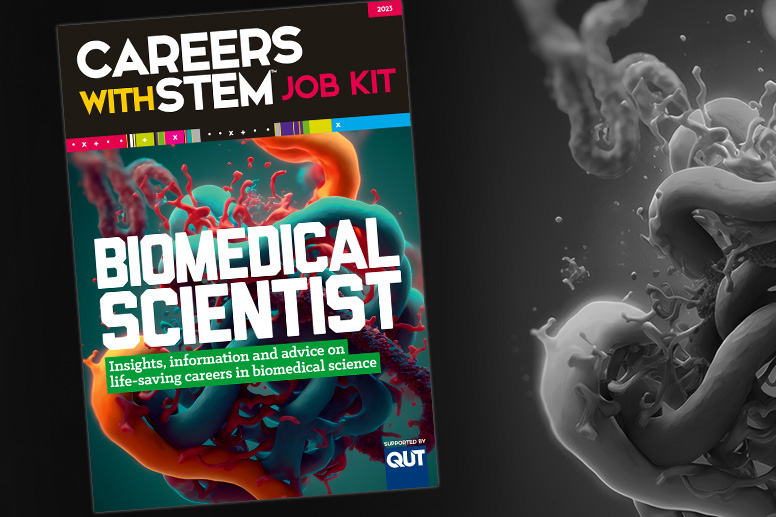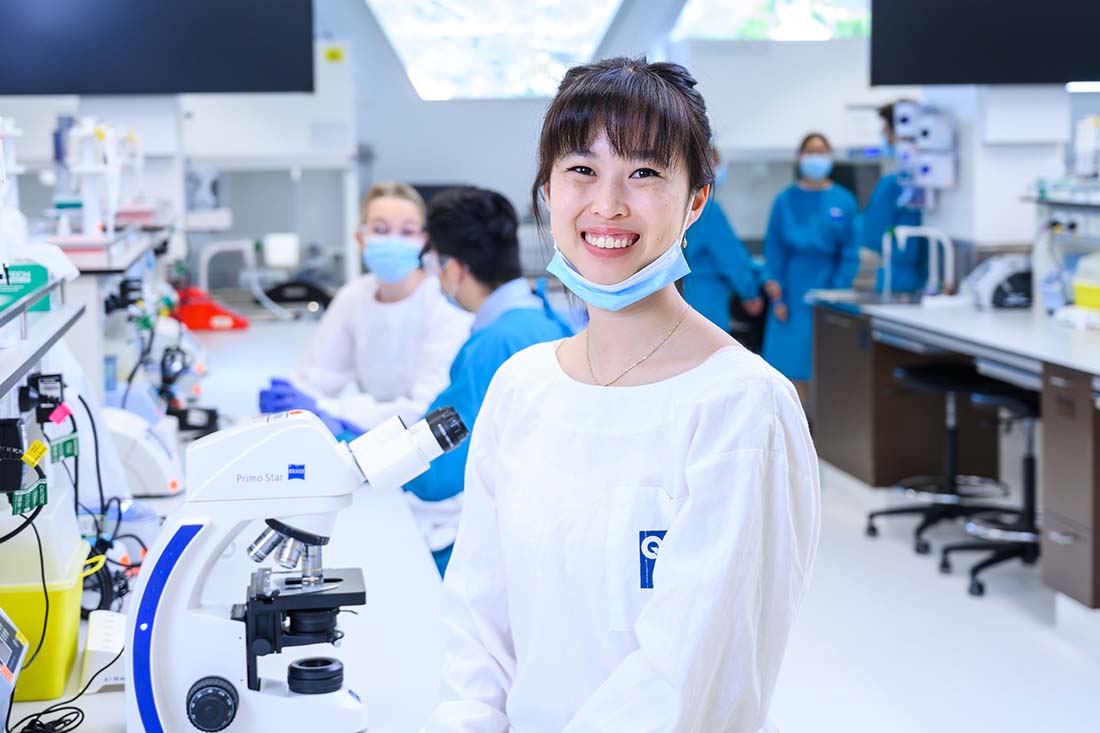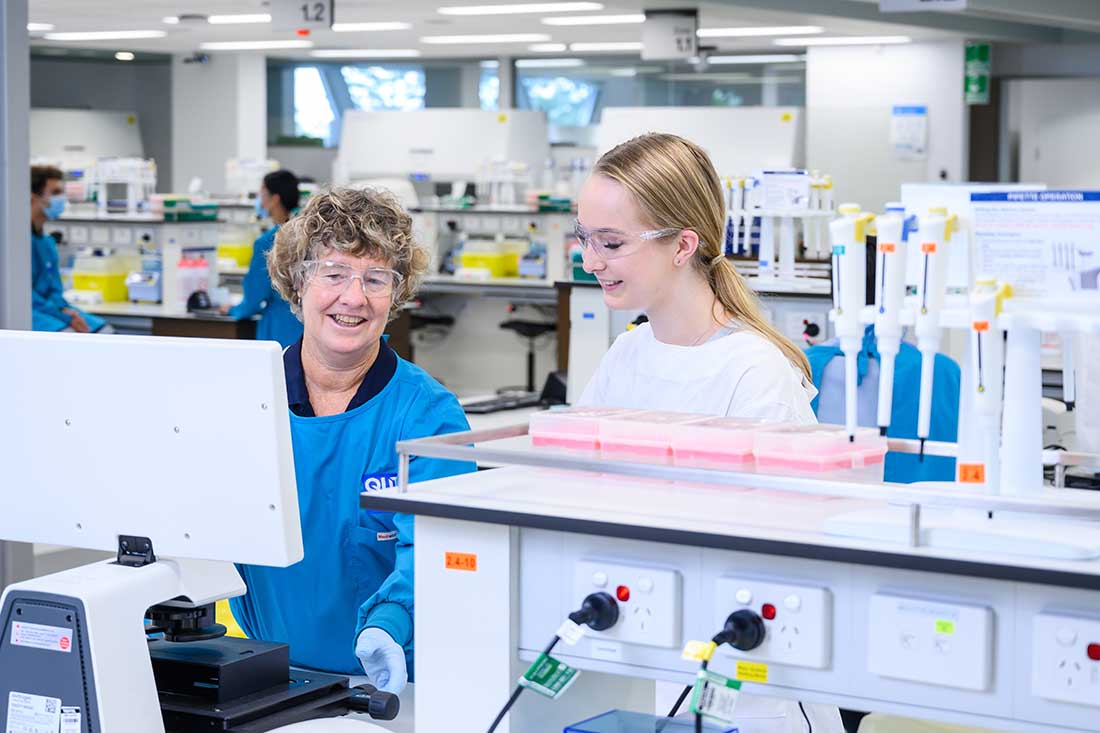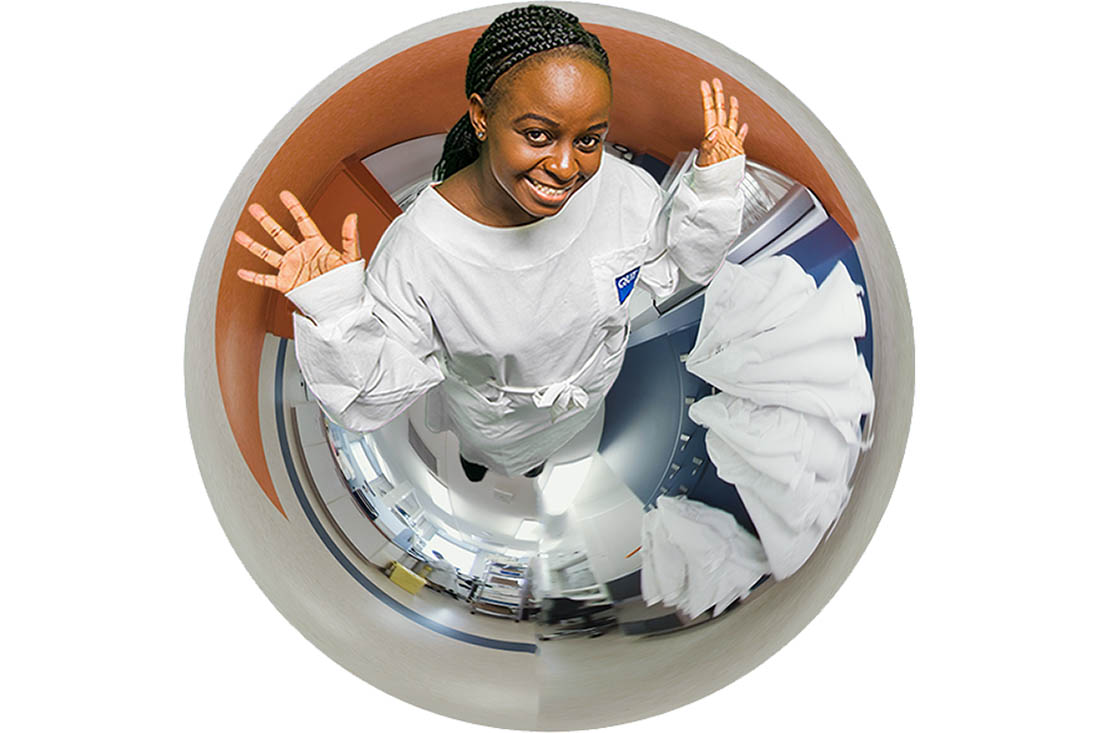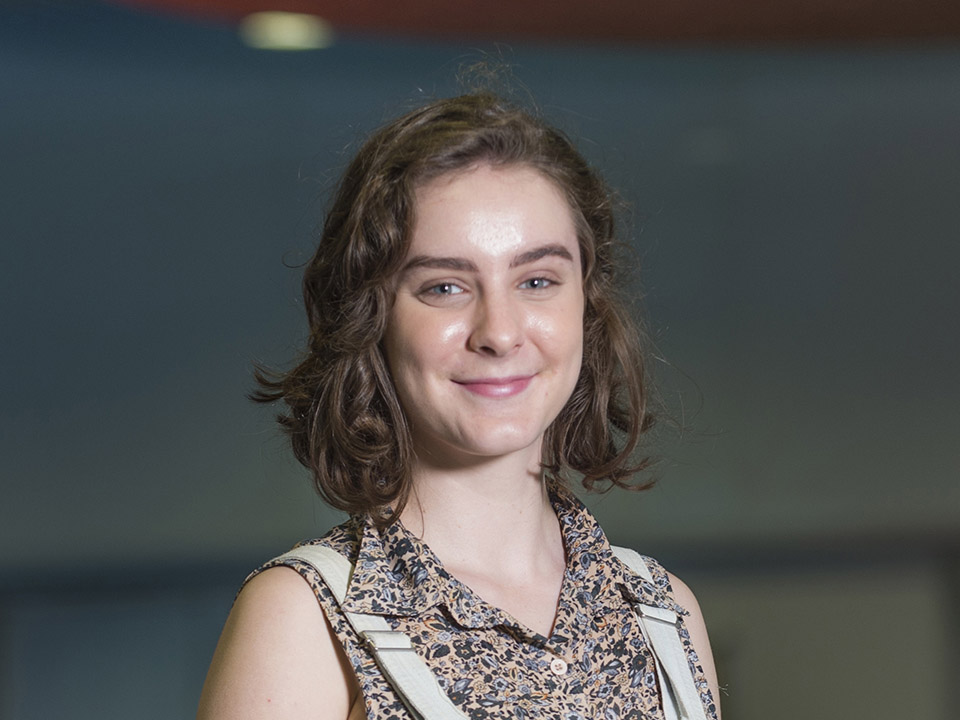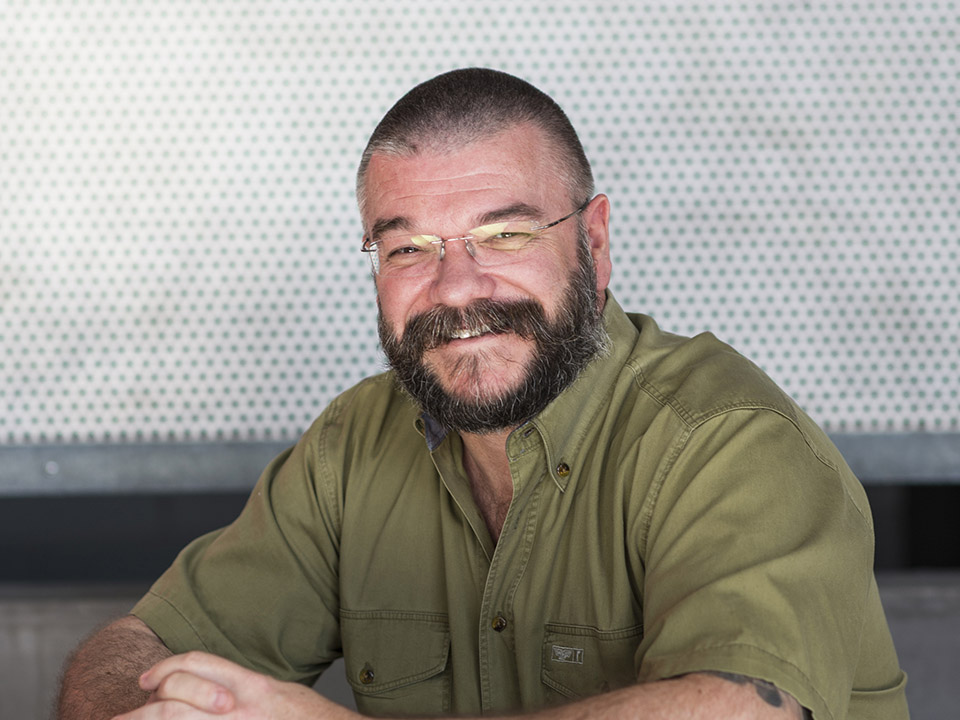At QUT you will start learning hands-on in the laboratory from your first day, working on real-life biomedical problems. You will develop industry-relevant practical skills and use cutting-edge technology in modern, well-equipped laboratories. Gain skills valued by employers by undertaking work placements for credit towards your study with leaders in the field in biotechnology, biomedical science industries, research, clinical sciences or clinical physiology.
Our flexible course allows you to find your passion in first year, then choose from a range of exciting and rapidly evolving areas to meet your career and study goals. You will choose a major and two minor areas of study that align with your interests and prepare you for areas of emerging priority and employment.
You can build your capabilities and employment opportunities further with the vertical double, Bachelor of Biomedical Science/Master of Data Analytics, or take on a double degree with law, maths or business.
Customise your degree
Our flexible course design means you can shape your path to suit your interests and career aspirations. Choose your major area of study from the list below.
Anatomical sciences
Build a deep understanding of the structure of the human body. Gain hands-on skills in dissection, histology, developmental anatomy, the analysis of medical images interpretation. Examine real examples from QUT’s collection including a skeletal collection, film library, pathology museum and human donor material.
Cell and molecular biotechnology
Study the cellular and molecular mechanisms of health and disease. Research cancer biology, tissue engineering, stem cells, genomics and proteomics. Explore the role of cell and molecular biotechnology in advancing personalised medicine.
Human biochemistry
Uncover the structure, function and properties of proteins and the molecular machinery that regulates our cells and tissues, metabolism, hormone action and disease. Learn protein science (proteomics) and apply advanced technologies to disease, uncovering new diagnostic and treatment approaches.
Human physiology
Understand how the human body works from the level of the molecule, to the whole body. Physiology underpins the study of disease, pharmacology, and medicine. Develop research skills to independently design and conduct laboratory-based research projects.
Infection and immunity
Study how infectious agents (bacteria, viruses, yeasts, fungi, parasites) cause disease and explore modern methods for diagnosing, treating, controlling, and preventing infectious disease. Discover how our immune system combats or causes disease and can be harnessed as treatments for disease, from infectious disease to cancer.
Clinical physiology (minor)
Apply clinical physiology techniques for testing patients for cardiac and respiratory illnesses, sleep disorders and neurophysiological disorders and discover career avenues in this growing field.
Double degrees
Combine two bachelor degrees into a single course of study. A double degree allows you to specialise in two fields and pursue different interest areas, gaining a broader range of skills and knowledge, and giving you a competitive advantage and greater career flexibility.
Consider the following double degrees with a Bachelor of Biomedical Science:
- Business: develop your career in a drug regulation, compliance or policy development role in government, as an analyst for venture capital and investment banks, consultant to innovation commercialisation companies, or in the research sector.
- Law: work as a solicitor, barrister, in-house counsel, or lawyer to government health departments, the pharmaceutical industry or drug commercialisation companies.
- Mathematics: Graduate with the ability to collect, collate and analyse data; build and interpret mathematical models that reveal new insights into patient treatment regimens; and develop new models of care that optimise the quality and efficiency of health care.
You may also want to consider our Bachelor of Biomedical Science/Master of Data Analytics. You will graduate with two complementary skill sets that will enable an understanding of disease processes and modelling of diseases progression to ensure that you will be in demand and employable across Australia and internationally.

